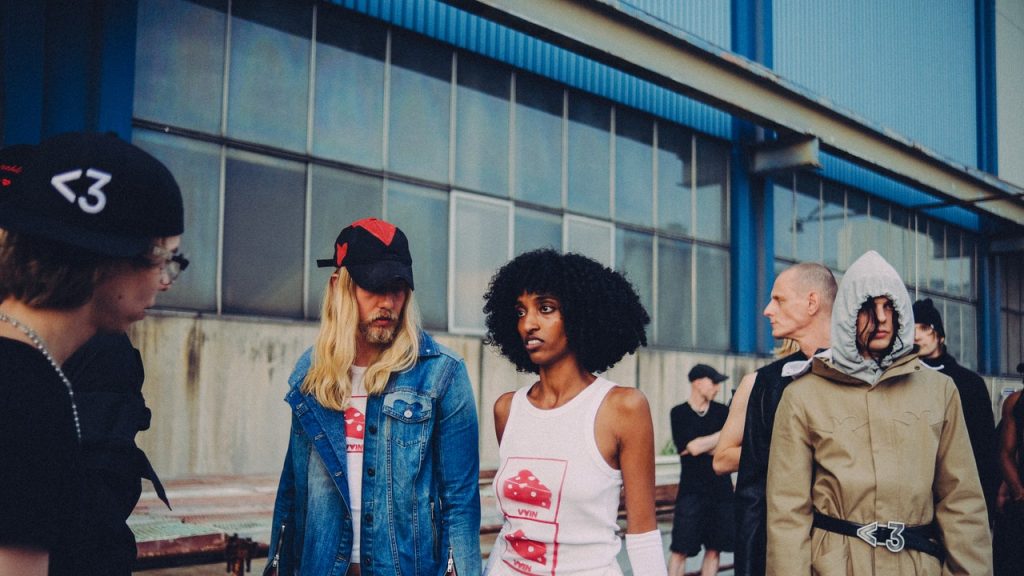The focus of Helsinki Fashion Week is on highlighting creativity and design processes while having fun. For example, designer Ervin Latimer, also known as Anna Conda, hosted a drag bingo night, showcasing his brand Latimmier’s exploration of masculinity through clothing. This unconventional event reflects the brand’s approach to gender and origins. Sustainability is a priority for many young brands at the event, such as Vain, which uses deadstock to create goth-inspired designs. Sofia Ilmonen, winner of the Hyères Sustainability Award, collaborates with Spinnova to produce modular designs from sustainably sourced materials, promoting longer garment lifespans.
Craftsmanship is also a significant focus at Helsinki Fashion Week, with designers like Ekroth producing knitwear locally in Finland. The brand offers customers DIY kits to knit their own designs, fostering a sense of community and experimentation within the knitting industry. The emphasis on promoting sustainable and locally made products reflects a larger trend towards ethical fashion consumption in the industry. Designers are increasingly conscious of the environmental impact of producing garments and are taking steps to minimize their footprint.
The unconventional and innovative spirit of Helsinki Fashion Week extends beyond the runway, with events like drag bingo and collaborative partnerships showcasing a diverse range of talent and perspectives. The event provides a platform for emerging designers to experiment with new ideas and challenge traditional notions of fashion. By prioritizing creativity, sustainability, and craftsmanship, Helsinki Fashion Week has become a hub for forward-thinking designers who are pushing the boundaries of fashion.
Through partnerships with companies like Spinnova, designers like Sofia Ilmonen are able to create innovative designs that prioritize sustainability without compromising on style. The use of textiles made from waste and sustainably sourced materials demonstrates a commitment to ethical fashion practices. By incorporating modular designs that can be easily modified and adapted, designers are promoting a more sustainable approach to garment construction that encourages consumers to invest in pieces that can be worn for longer periods of time.
Events like drag bingo hosted by Latimmier showcase the intersection of fashion and performance art, creating a unique and inclusive environment for designers to express themselves and connect with a global audience. The emphasis on individuality and self-expression at Helsinki Fashion Week reflects a broader shift in the industry towards celebrating diversity and inclusivity. By providing a platform for designers to showcase their creativity and engage with international guests, Helsinki Fashion Week is fostering a sense of community and collaboration within the fashion industry.
In conclusion, Helsinki Fashion Week is an innovative and forward-thinking platform that celebrates creativity, sustainability, and craftsmanship in the fashion industry. Through unconventional events, sustainable partnerships, and a focus on promoting local talent, the event showcases the unique perspective of Finnish designers and their commitment to ethical fashion practices. By prioritizing inclusivity and experimentation, Helsinki Fashion Week challenges traditional norms in the industry and provides a space for emerging designers to showcase their talent and push the boundaries of fashion.


